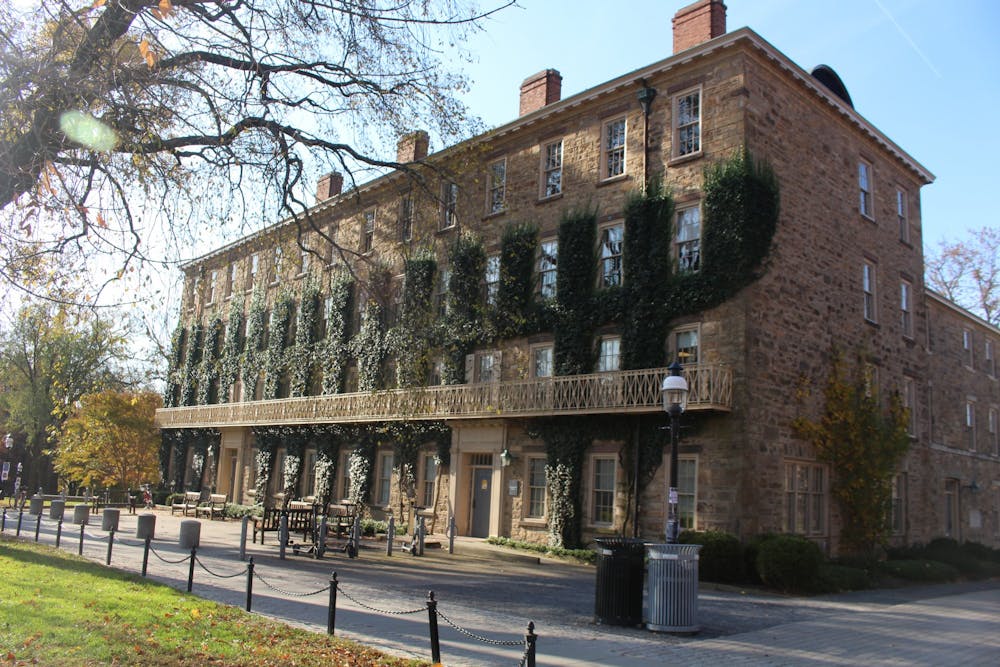It’s a difficult time for a lot of us right now in the United States and around the world, especially for racial, ethnic, gender, and sexual minorities. I know that this may feel like a hopeless time. I’ve felt the same sense of hopelessness many times before, and yet somehow, we always make it through.
I remember sitting in the car with my parents and my brother, heading to school, when we heard that the UK voted for Brexit. My family are first-generation immigrants and had temporary visa status at the time; this decision marked a time of great uncertainty for us. Although Britain still reaps the negative impacts of their decision, eight years later, we recently re-elected the Labour government, our left-learning party.
My family and I have also been directly impacted by Jair Bolsonaro, the far-right, hyper-religious candidate elected during Brazil’s 2018 presidential election. However, in Brazil, we have also since reinstated a left-leaning government. We’ve all been here before in America, with the defeat of Hillary Clinton in 2016, yet Joe Biden overcame Trump in 2020. What I am saying is: we need to have hope that things will get better. By holding on to each other, we will find our way through the next four years.
Having left the future of the country, my livelihood, and my status as an international student and as a Black person in the hands of other voters, I feel let down by the result. Now, my right to pursue research related to historically oppressed communities, my right to choose, and my right to marriage equality are all on the line. But, as Sara Ahmed writes in her 2006 book “Queer Phenomenology,” “Hope is an investment that the ‘lines’ we follow will get us somewhere.” And right now, we have to find hope in each other.
By continuing to rely on hope and on each other, we can come to recognize our ability to protect each other and to work towards a better future. The next four years, and really the rest of our lives, will be about working together to care for each other, both at Princeton and nationally.
African American Studies (AAS) Professor Eddie Glaude spoke to my AAS201 precept about this on Nov. 6, following the election results: he encouraged us to act as barrier islands, for our communities, for one another — breaking the force of the wind before it hits the mainland. Breaking the force of the wind before it hits those of us who are most vulnerable.
As barrier islands, as people who want to care for one another, we should recognize what we each bring to the table and the different ways we can use our privilege to benefit each other.
Some of us at Princeton are better positioned to directly oppose policies that infringe on all people’s human rights. All citizens, residents, green card holders, and people entering the country on visas have the moral obligation to show up for undocumented and DACA status students on campus and broadly in our communities. All people with white privilege must also stand by racial and ethnic minorities, much as cisgender straight students must stand by the queer community.

We must learn how we can best support all communities, and how we can begin to connect individuals to resources that inform them of their constitutional and human rights before, during, and after the Trump administration.
At this time, many of us may feel like there is no way out — especially undocumented immigrants who are facing the very real threat of deportation, women and people who are capable of childbearing who are facing the inability to choose, the queer community and interracial couples who are facing the reversal of marriage equality, young people who are facing threats to the climate. But learning about the choices we have available to us can be the difference between nihilism and successfully protecting ourselves and our communities. There is hope for us all, we just have to find it.
While we wait out the next four years with the goal of electing a liberal government, we must continue to remind each other that there is hope — through support, community, and protection. We must also continue to make space for discourse that validates the fears and concerns that communities and individuals will be feeling. During a moment where we’re grieving the country we thought we were working towards, it’s more important now than ever that we create spaces where we can find hope and support in community.
First, however, I encourage us all to find ways to reground ourselves. We are living through an unprecedented time. History is truly in the making. It’s okay if your first instinct is not to protest, to organize, to support others — it’s okay if what you choose to do instead is to care for yourself and those closest to you. Pull the people you love closer. Look inward, turn to your communities for support. Find ways to take care of ourselves, to recharge. By turning towards our systems of support, we can find hope that things will get better.

From here, from the hope we find, let’s come together and put in the work. Let’s get clear on our commitments, and how we want to live together. Let’s show up for people less privileged than we are. Let’s support our friends, our families, our communities, and especially strangers in their fight for human rights, whether or not their causes hit home for us. Let’s protest, make our voices heard. Let’s work towards a country we can and want to live in. Per Mariame Kaba: “we do this ‘til we free us.”
Asa Santos is a senior Anthropology major from London and São Paulo, minoring in Gender & Sexuality Studies and Global Health & Health Policy. Santos’ column, “Opening the Gates,” runs every two weeks on Tuesdays. All of their columns can be read here.








